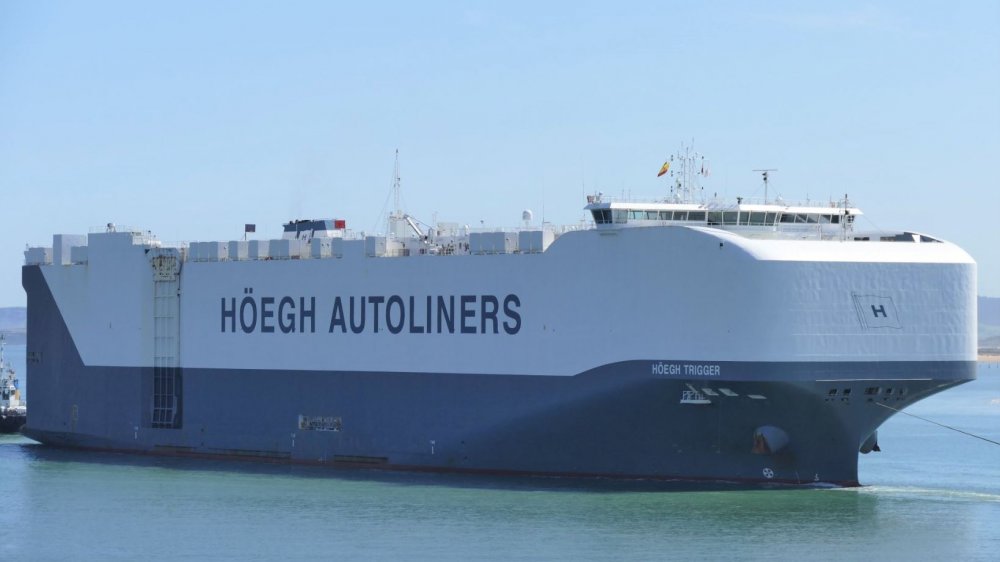
On 19 March, Höegh Autoliners accelerated its decarbonisation efforts successfully completing its first carbon-neutral voyage from Europe to South Africa.
During this voyage the New Horizon vessel Höegh Trigger ran on advanced biofuels meeting the highest sustainability standards. The successful trial voyage showed that biofuel is a viable choice for vessels in the fleet.
Höegh Autoliners is working closely with customers and partners in reducing its carbon footprint and supporting customers in decarbonising their logistics supply chain. Using advanced biofuels to run existing fleets has a strong potential to significantly reduce emissions today, while new ship technologies evolve.
Andreas Enger, CEO at Höegh Autoliners said,
“We are committed to leading the way towards a zero-emissions future. The success of this trial voyage demonstrates that with the use of alternative fuels like biofuel, we can contribute to significant steps towards decarbonisation in the maritime transportation industry. Our company and customers have high ambitions to combat climate change, and we are committed to delivering on that.“
GoodFuels’ biofuel was chosen for the test run as it’s virtually free of sulphur oxides and reduces the vessel’s carbon emissions by up to 90%. The remaining emissions generated were offset through certificates from Gold Standard, to make the voyage truly carbon neutral.
Isabel Welten, Chief Commercial Officer at GoodFuels, says, “We are proud to supply our truly sustainable biofuels. Working with shipping operators like Höegh Autoliners, we contribute to making ocean transport more sustainable and together play an essential role in reducing CO2 emissions in the maritime industry.”
The New Horizon series of vessels can transport up to 8500 car equivalent units and were designed to minimise impact on the environment. The vessels are equipped with the latest fuel-saving technologies, reducing CO2 emissions per car equivalent unit by 50% compared with standard car carriers.

